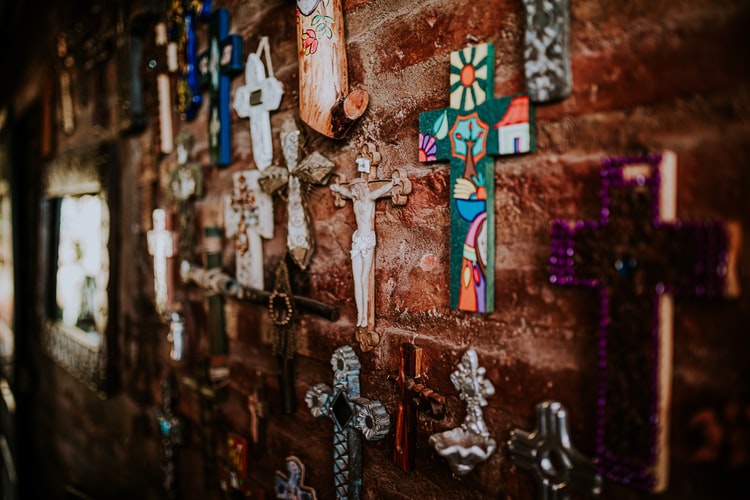by Sr. Constance Joanna, SSJD.
Numbers 21.4-9 Psalm 98.1-6 1 Corinthians 1.18-24 John 3.13-17

This is one of those times in the church year when we recall the major landmarks of our faith. We tend to commemorate these landmarks several times in the liturgical year – once when they come up in the cycle of Jesus birth, death, and resurrection from Christmas to Easter – and again at other times of the year when they punctuate what we call “ordinary time” with extraordinary reminders of the those key moments – some we recall on a weekly basis and some annually.
For instance, we have echoes of Maundy Thursday, Good Friday, and Easter reflected in the traditional monastic round of office hymns, antiphons, and readings each Thursday, Friday, and Sunday of ordinary time. And throughout the year we have feast days and commemorations that correspond to the major events of Jesus’ life – like the feast of Corpus Christi corresponding to Maundy Thursday, Holy Cross Day corresponding to Good Friday, the Reign of Christ at the end of the Pentecost season corresponding to the Ascension, the Annunciation to Christmas, the August celebration of the Transfiguration to the last Sunday in Epiphany when we recall another epiphany – the revelation of Jesus as the Messiah to Peter, James and John just before his last journey to Jerusalem, and that feast itself recalling the Baptism of Jesus. What a rich tradition we have inherited.
So here we are, five months after Holy Week, thrown back to Good Friday again – or are we? Is that really all there is to this feast – just a reminder so that we don’t forget the importance of the cross to our faith? So we don’t get too comfortable and forget the cost of our discipleship? So we don’t forget St. Helena’s pilgrimage and her discovery of the wood of the true cross in the fourth century?
I don’t think it’s that simple. I think the way these landmarks come up in the cycle of the year during Ordinary Time has more to do with the basic human need to connect the central truths of our faith with our own personal and corporate experiences of life, death, and resurrection – our own paschal journeys which like our lectionary sometimes cycle through a year, sometimes a season, sometimes even in a week.
That is especially true, I think, on this September day in 2020 as we keep the feast of the Holy Cross in the midst of a world-wide pandemic, at a time when the powers of darkness seem to be closing in on us from every direction, with social, policical and economic fallout – not only from a fierce virus, but from climate disasters, political storms, economic wars between and within nations, the resurgence of racisim and nationalism around the world, and the threat of the end of liberal democracy.
Commemorating the power of the cross today, in this time and this place, is crucial because it reminds us that our Creator, Godself, suffers the loss and darkness, the grief and confusion, the disorientation of the evil in our world and that God’s willingness to suffer with us is what John means in the gospel when he says “God loved the world so much that God gave the Only Begotten so that all who believe may not perish but have eternal life.”
Another way of saying this is that God loved the world so much that God was willing to suffer and die Godself. Our very Creator is also our Saviour. The Creator who spoke the cosmos into being is also the Word, the Logos who came and lived among us and died. And that is what we are called to do – to die to ourselves, to our self-concern and insistence on getting our own way and protecting our own interests. We like God are called to relinquish those habits of soul and mind so that we may create something new – a world of love rather than hate, of peace rather than war, of health rather than disease, of wholeness and unity rather than fragmentation.
This feast is for us a strong reminder that in the cross all enmity is ended, all walls of separation broken down. Our own individual griefs and losses and fears and disappointments are absorbed in that amazing, overwhelming, eternal love of God.
“For I am convinced,” as Paul says in his letter to the Christians in Rome, “that neither death, nor life, nor angels, nor rulers, nor things present, nor things to come, nor powers, nor height, nor depth, nor anything else in all creation, will ever be able to separate us from the love of God in Christ Jesus our Lord.”


